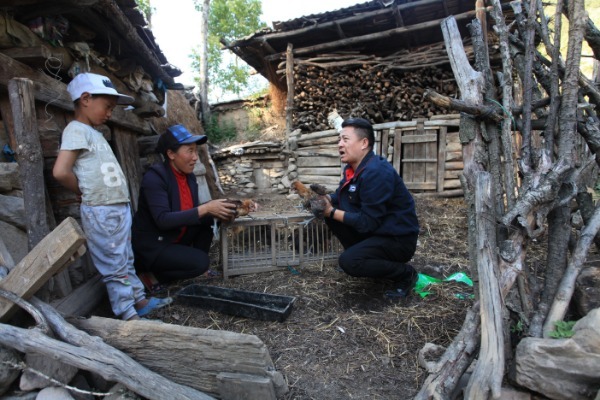An integrated approach


At the time, the nearly 1,000 villagers were scattered over a region of over 20 square kilometers on a mountain at an altitude of over 3,000 meters. They planted mainly potatoes for daily consumption and kept a few chickens to exchange for groceries.
In a very short time after arriving, Wang had visited every family to discover the needs of the villagers before embarking on a project to build a community with secure accommodation that benefited 73 impoverished families. Together, Wang and the villagers also managed to build a sewage treatment plant.
Locals usually plant some vegetables and fruits in their courtyard, and they can also pick up the fruit that grows on the ornamental cherry trees around the newly built community to eat or sell.
In the past, because of the poor transportation conditions, Boli Muga, 68, and his wife, struggled to sell the few potatoes and buckwheat they planted, or the chickens they kept.
Soon after, the couple moved into a new 80-square-meter house with three bedrooms and a flushing toilet. They paid 2,000 yuan, and the government subsidized them for the rest of the money.
Their daughter, the village's first college student, graduated this year and works as a nurse in Dechang county that has a better economy.
Upon learning that the couple had to borrow money for their daughter's college expenses, Wang and his team donated school fees and bought her a laptop.
Now Boli Muga works for the village administration to maintain the cleanliness of the village and public facilities. His wife is employed at the local agricultural base.
Wang also helps find sales channels and markets for the livestock kept by the villagers. Together, the couple is able to earn more than 20,000 yuan a year.
Wang is often called "uncle" by younger villagers. The word, while usually referring to a parent's male siblings, in Yi culture, is an appellation bestowed upon highly-respected male figures. Elderly people have also been entrusting their funeral arrangements to him.




































